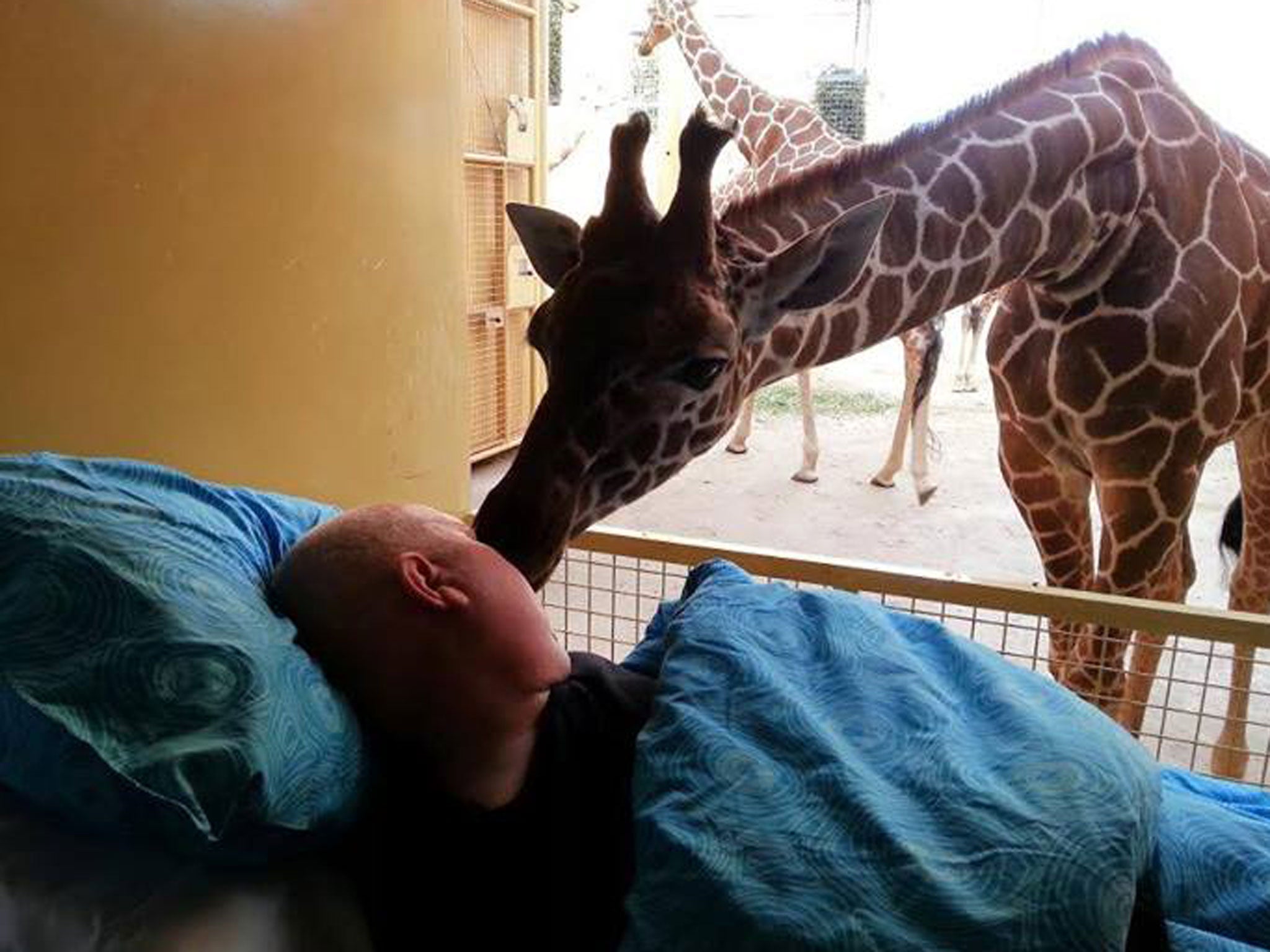Giraffe's final goodbye: kisses for a dying zoo worker
Terminally ill man asked to be taken into giraffe enclosure to say goodbye

Heart-breaking pictures have emerged of the moment a giraffe said goodbye to a terminally ill zoo worker, who had spent most of his adult life cleaning the animal's enclosures.
Maintenance worker Mario has terminal cancer and had asked to be taken into the giraffe enclosure at Rotterdam’s Diergaarde Blijdorp zoo.
The 54-year-old was wheeled into the enclosure on his hospital bed. Within minutes, the giraffes approached him and began to nuzzle and kiss him.
The Ambulance Wish Foundation, which transported Mario to the zoo, said Mario has little mobility and finds speaking very difficult. "However, his face spoke volumes", they said.
"These animals recognised him, and felt that (things aren’t) going well with him,’ Kees Veldboer, the founder of the AWF told Dutch newspaper Algemeen Dagblad.
"(It was) a very special moment. You saw him beaming."
In pictures: Loyal animals
Show all 6Mario, who has a mental disability, was also given the chance to say goodbye to his colleagues at the zoo, where he has worked for almost 25 years.
The AWF relies on 200 volunteers to help make the last wishes of terminally ill patients come true by transporting them in specially designed ambulances.
Various studies have suggested animals can sense illness in humans, including diseases with no visible symptoms.
Marine, a labrador retriever, was successfully trained in 2011 to detect people suffering with bowel cancer. Sniffer dogs have also proved successful in identifying patients with lung cancer.
A 2007 study in the New England Journal of Medicine found one cat could identify people who were dying of a terminal illness at a nursing home.
Oscar the cat appeared to ‘predict’ a patient's death by sitting next to their bed and keeping a vigil there until they died, which was usually a few hours later.
If he was forced out of the patient's room he would become distressed and would continue to meow outside the door, researchers noted.
Oscar presided over the death of 25 residents during his time at the home. His presence at the bedside of a patient became viewed by physicians and nursing home staff as an almost absolute indicator of impending death, allowing staff members to adequately notify families.
Subscribe to Independent Premium to bookmark this article
Want to bookmark your favourite articles and stories to read or reference later? Start your Independent Premium subscription today.

Join our commenting forum
Join thought-provoking conversations, follow other Independent readers and see their replies